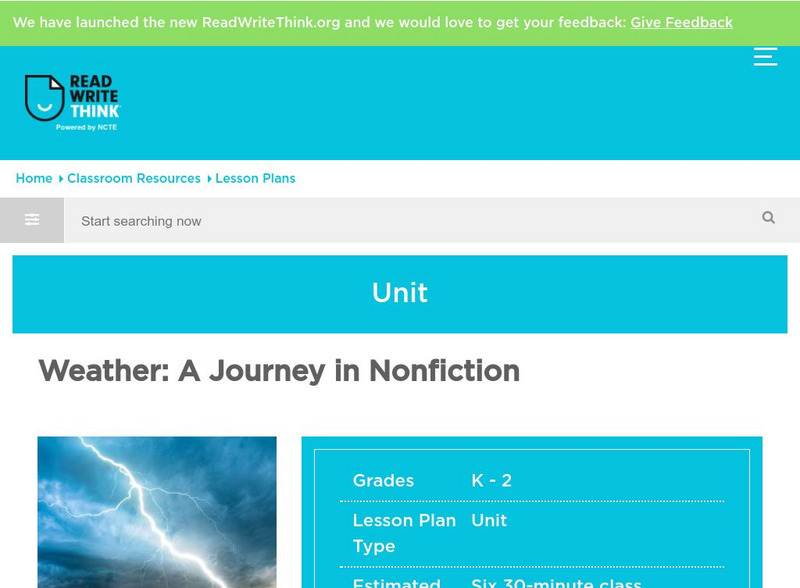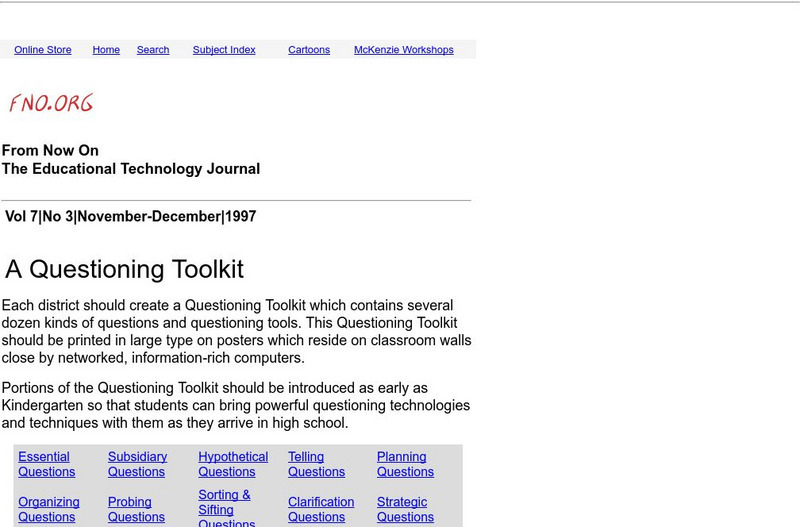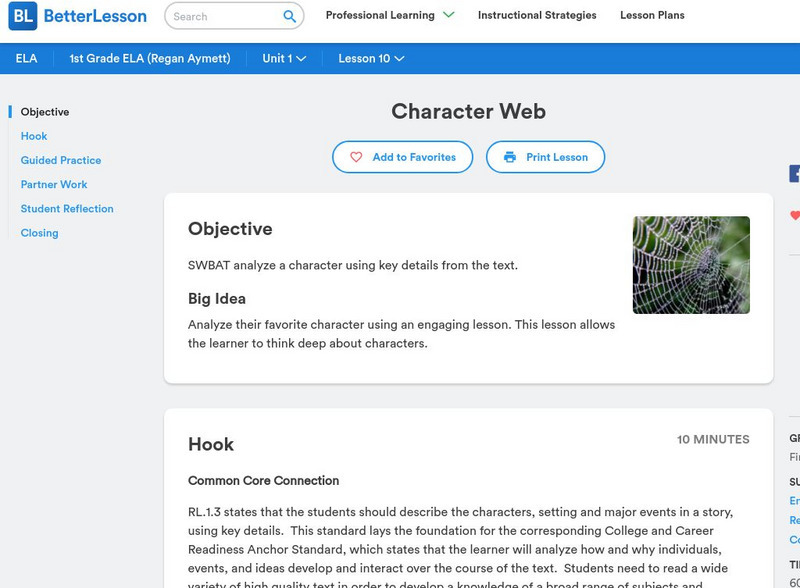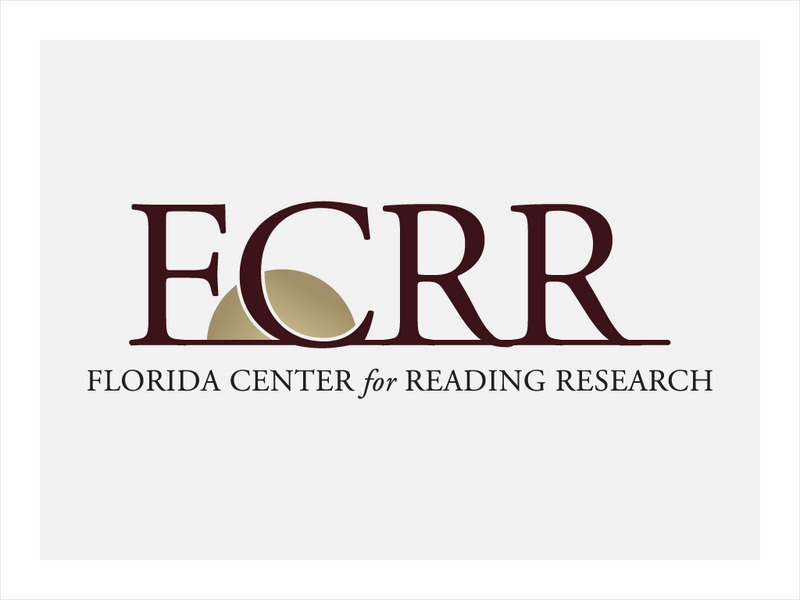ReadWriteThink
Read Write Think: Weather: A Journey in Nonfiction
Questions about weather clear up when students use what they learned from their books to create a presentation to share with the rest of the class.
Read Works
Read Works: Snowflake Bentley
[Free Registration/Login Required] In this ReadWorks read aloud lesson, students will describe Bentley's environment and his interactions with it. Students will evaluate the impact a person's environment can have on life. Then students...
FNO Press
From Now On: A Questioning Toolkit
What exactly is a "questioning tool kit"? This resource provides techniques for asking essential questions, hypothetical questions, telling questions, planning questions and organizing questions.
Curated OER
Mc Graw Hill: Part 2: Reading Informational Text: Ask and Answer Questions
Learn about questions to ask while reading a text on this site. Also, review where to look for the answers to the questions that you asked.
Scholastic
Scholastic Teaching Resources: Nonfiction Notepads [Pdf]
From Just-Right Reading Response Activity Sheets for Young Learners, this graphic organizer can be used when students read informational texts. As responses to nonfiction, students will write the following on each notepad response:...
Read Works
Read Works: The Yo Yo
[Free Registration/Login Required] A literary text about a boy named Brendan who learned that it is always better to share his toys. A question sheet is available to help students build skills in reading comprehension.
University of Victoria (Canada)
Elc Study Zone: Level 200 Reading Topics
Choose a story from seven stories to read and/or listen to. Practice reading comprehension by completing the interactive quizzes and exercises. Answer the questions, then look for your score.
Better Lesson
Better Lesson: Character Web
In this lesson, learners will create a character web. Students will use a character from their storybook character for the web.
Better Lesson
Better Lesson: Rl.1.1 Ask and Answer Questions About Key Details in a Text.
This landing page offers different lessons related to the standard RL.1.1 Ask and answer questions about key details in a text.
Florida Center for Reading Research
Florida Center for Reading Research: Monitor for Understanding: Question Creation [Pdf]
A lesson plan in which students read a text and create questions using the words provided on word cards. Materials are included.
Florida Center for Reading Research
Florida Center for Reading Research: Monitor for Understanding: Stop and Ask [Pdf]
A lesson plan in which students read a text stopping to answer questions as they read. Materials are included.
Florida Center for Reading Research
Florida Center for Reading Research: Answer Know How [Pdf]
A lesson plan in which students sort questions into one of four types: On My Own, Author and Me, Right There, and Think and Search. Materials are included.
Florida Center for Reading Research
Florida Center for Reading Research:ask and Answer [Pdf]
A lesson plan in which students read a text and stop periodically to write questions based on question word cards. Materials are included.
Florida Center for Reading Research
Florida Center for Reading Research: Expository Text Structure: Main Idea Mania
A lesson plan in which students read a text and record the main ideas and supporting details on one of the graphic organizers provided. Materials are included. [PDF]
Florida Center for Reading Research
Florida Center for Reading Research: Exp. Text Structure: Detail Delight [Pdf]
A lesson plan in which students read a text use a graphic organizer to record the topic and supporting details. Materials are included.
Florida Center for Reading Research
Florida Center for Reading Research: Expository Exploration [Pdf]
A lesson plan in which students read a text and complete a graphic organizer to identify the main idea and supporting details. Materials are included.
Other
Medium: Helping Students Ask Better Questions by Creating a Culture of Inquiry
We want to see kids asking tons of questions. This is how students grow into creative, critical thinkers. This article by John Spencer gives multiple ways teachers can foster an environment in which students feel comfortable asking...
Education.com
Education.com: Ask Me How
[Free Registration/Login Required] In this lesson, your students will become familiar with using this question word to investigate how things work. At the conclusion of this lesson, students will be able to ask and answer questions to...
Edutopia
Edutopia: Teaching Students How to Ask Productive Questions
This article gives insight into how to improve engagement, comprehension, and critical thinking by teaching students the process of asking insightful questions. Included is a comprehensive, metacognitive framework of questioning skills...
Love To Know Media
Your Dictionary: Examples of Open Ended and Closed Ended Questions
Explains the difference between open and closed questions. Gives examples and situations where each might be used.
PBS
Pbs Learning Media: Arthur: Collection
This collection foster students' interest in reading and writing, and encourage positive social skills with this collection of classroom resources from ARTHUR. Aimed at children between the ages of four and eight, these resources feature...
Scholastic
Scholastic: Teaching Tools: 6 Steps to Helping Students Set Strong Reading Goals
This site offers six steps to helping students set strong reading goals. It all starts with inspiring your students to think about who they are as readers.
Louisiana Department of Education
Louisiana Doe: Louisiana Believes: Guide for Determining Text Complexity
An educator's guide to help determine the level of text complexity.
Axelson Academy
Axelson Academy: Asking and Answering Questions About Unknown Vocabulary
In this lesson, students will receive support and prompting as they listen to informational text and then determine the meaning of one of the words in context.






![Scholastic Teaching Resources: Nonfiction Notepads [Pdf] Graphic Scholastic Teaching Resources: Nonfiction Notepads [Pdf] Graphic](https://content.lessonplanet.com/knovation/original/360626-4d78344ceeaa140aeef2ac8672d73b35.jpg?1661510814)




![Florida Center for Reading Research: Monitor for Understanding: Question Creation [Pdf] Lesson Plan Florida Center for Reading Research: Monitor for Understanding: Question Creation [Pdf] Lesson Plan](https://content.lessonplanet.com/knovation/original/509078-f113fac8eaf33259ad1320892a4af82b.jpg?1661787005)
![Florida Center for Reading Research: Monitor for Understanding: Stop and Ask [Pdf] Lesson Plan Florida Center for Reading Research: Monitor for Understanding: Stop and Ask [Pdf] Lesson Plan](https://content.lessonplanet.com/knovation/original/509079-03c90ed1dc90ad68d0f97d0da64faaeb.jpg?1661787004)
![Florida Center for Reading Research: Answer Know How [Pdf] Lesson Plan Florida Center for Reading Research: Answer Know How [Pdf] Lesson Plan](https://content.lessonplanet.com/knovation/original/509081-6c393dbd829b817b3ebc88945d0d476c.jpg?1661787001)
![Florida Center for Reading Research:ask and Answer [Pdf] Unit Plan Florida Center for Reading Research:ask and Answer [Pdf] Unit Plan](https://content.lessonplanet.com/knovation/original/509091-3b197a566336bf3b326298f2bb8dbb48.jpg?1661786987)

![Florida Center for Reading Research: Exp. Text Structure: Detail Delight [Pdf] Lesson Plan Florida Center for Reading Research: Exp. Text Structure: Detail Delight [Pdf] Lesson Plan](https://content.lessonplanet.com/knovation/original/509111-e5c1656174893ec0b13796fa102b33a6.jpg?1661786956)
![Florida Center for Reading Research: Expository Exploration [Pdf] Lesson Plan Florida Center for Reading Research: Expository Exploration [Pdf] Lesson Plan](https://content.lessonplanet.com/knovation/original/509114-1621b87800788ad03f8f6464b347c698.jpg?1661786951)


